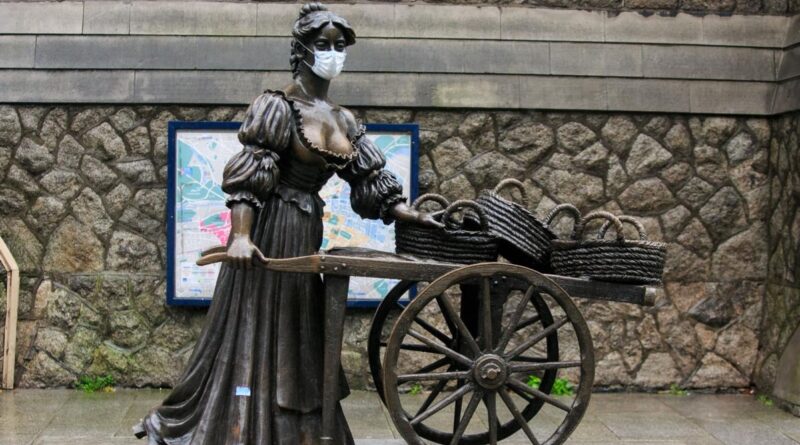Brandwidth 2020 – The Year In Review
Unprecedented: 2020 Brand Year In Review
What’s Up Doc?
Although 2020 will be forever branded indelibly in our minds as the year of Covid-19, hindsight may find it more remarkable as the year the science fought back.
Readers of a certain vintage will recall Jennifer Aniston (Rachel of Friends) smirking at the camera after gushing over the virtues of one brand of shampoo and playfully reassuring the sceptical viewer: ‘Here comes the science bit – concentrate’.
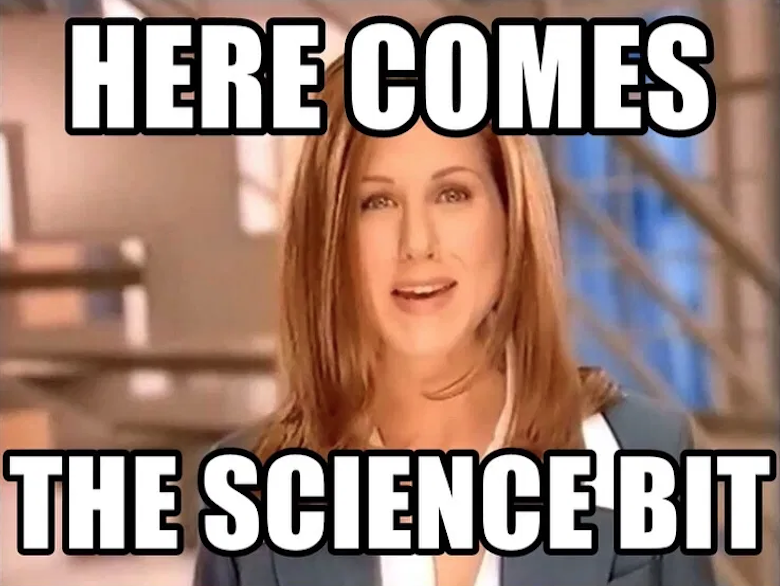
Following a decade when the science bit had become more of an after-thought or, even worse, an irrelevance, the world in pandemic about-faced and waited for the latest word from the labs and the clinics to help map out our next courses of action.
Here in Ireland, the people of science, most notably our Chief Medical Officer Tony Holohan, but including others such as biochemist Luke O’Neill and infectious disease specialist Jack Lambert, became our go-to references for the new reality, the new abnormal that they had spent studying and preparing for long before the decade of fake news and alternative facts.
Of course, it helped that our Taoiseach of the day, albeit in a caretaker capacity, was also a physician, and we didn’t have to look too far either east or west to appreciate political leadership which considers the science bit first rather than as an inconvenient after-thought.
Fake Brands
Riding on the laboratory coat tails of the scientists were a number of brands which trade in real news rather than fake news, and across the world many of the traditional media titles and channels such as The Washington Post, The Guardian, the BBC and, in Ireland the Irish Times and RTE, saw a surge in subscribers looking for something much closer to the truth than the gossip, rumour and innuendo which had dominated in previous years.
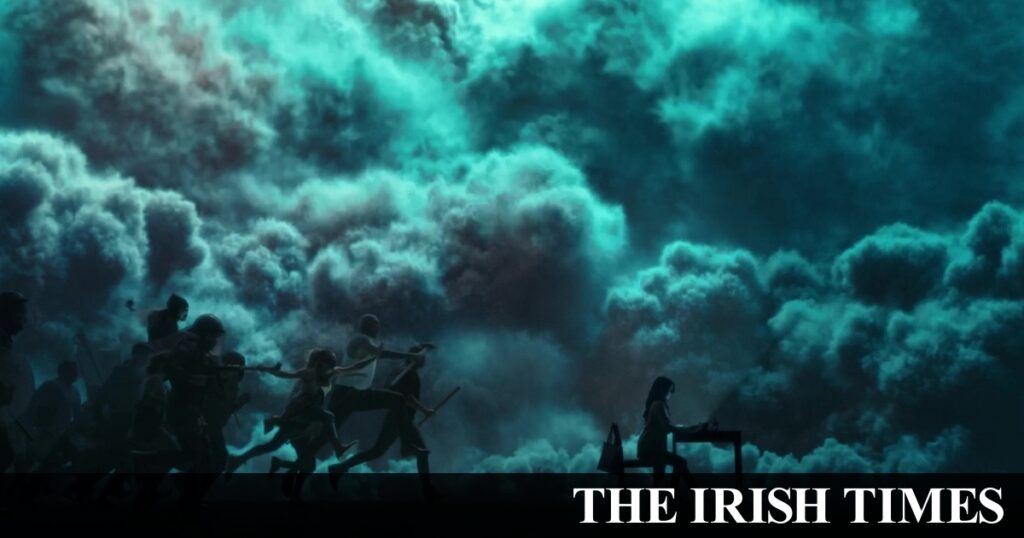
Perhaps the most powerful evidence of this shifting axis came when Fox News, long-time apologists for the reluctant-to-depart US President, stopped trumpeting his distorted versions of events and acknowledged the truth based on the expert evidence of those tasked with counting the votes in the recent election.
Word Is
Meanwhile, the Oxford Dictionary, whose Word of the Year usually reflects a singular trend in how we see and deal with the world around us allowing us to ‘brand’ the year in hindsight, confessed that thanks to the “seismic shifts in language data and precipitous frequency rises in new coinage”, 2020 had too many potential words of the year to name just one.

As we all became what The Guardian described as ‘armchair epidemiologists’, scientific terms became commonplace, whilst the phrase “following the science” increased in frequency more than 1000% compared with 2019.
As a result, brands almost everywhere began to factor in the language of social distancing to their messaging to customers, whether to reassure or to play to the newly house-bound audience whose world had become largely restricted to the living room.
What Matters?
Away from the medical front lines, new lines were being drawn in the wars on inequality, most notably with the growing popularity of Black Lives Matter. Whilst this movement traced its recent origins to the courageous black athletes ‘taking a knee’ in previous years across the playing fields of America, the cancellation of sports events in the first half of the year, followed by the playing of elite games in empty stadiums, did surprisingly little to slow its march, as taking a knee before the whistle blew became a regular part of pre-match rituals across the world.
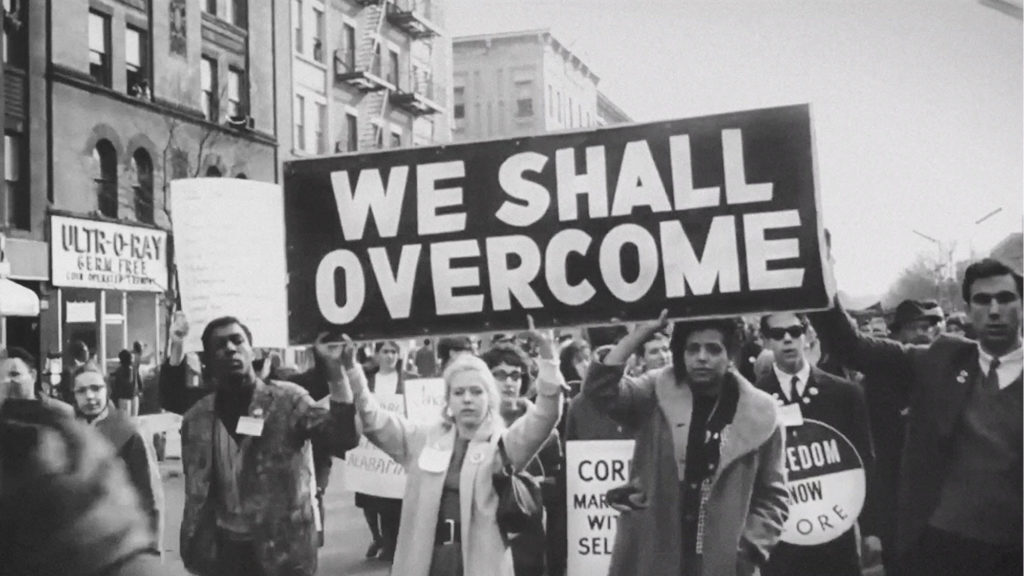
At the same time, a handful of Premier League footballers challenged their casual branding as self-absorbed and lightweight by many commentators and political leaders, with English strikers Marcus Rashford and Raheem Sterling leading the way in tackling weighty issues such as hunger, poverty and racism, whilst many of the controlling and political elite merely stood by.
Those on the side of the powerful who hoped that they might ride out this storm, like they had done many before, were disappointed to find that this was no passing weather-front. If anything, the resolve of those prepared to call out the inequalities intensified, and many of the year’s new TV shows and films – and, in 2020, almost every film was a TV show as cinemas remained closed for much of the year – began to better reflect the diversity of the world at large.
Mainstream series in this part of the world, such as Michelle Cole’s I May Destroy You and Steve McQueen’s Small Axe, broke new ground in presenting a new cast of characters representing the millions who rarely featured in leading roles on screen, and both entertained us brilliantly whilst managing to highlight the many inequalities at play in modern society.
Exotic, Extraordinary & Ordinary People
Viewing in lockdown also introduced three new stories to the world at large, which quickly became talking-points and cultural references for the other stories being shared across social media.
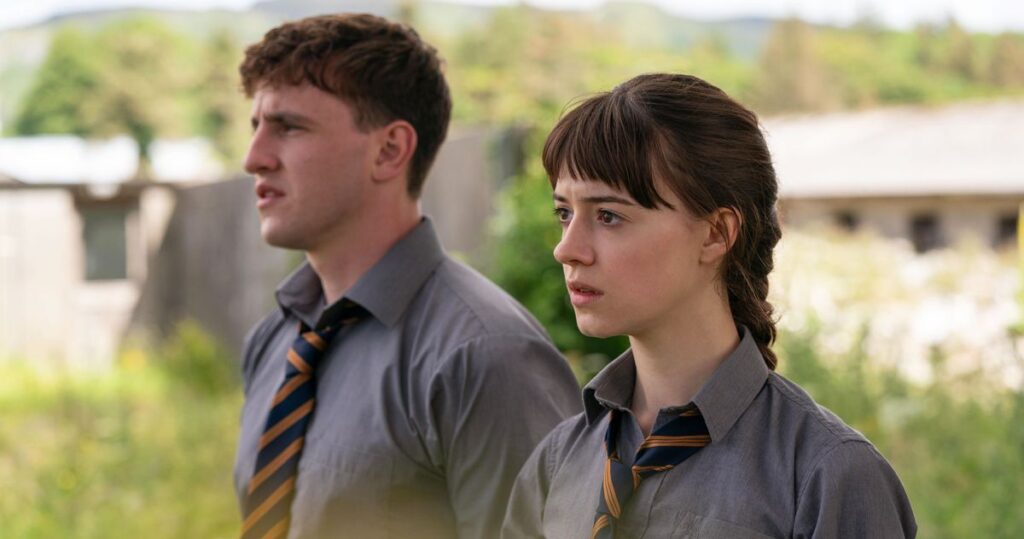
The timing of Sally Rooney’s Normal People, the slow-moving but utterly compelling love-story which might have foundered in a pre-Covid world as attention-spans shortened, proved perfect for a society of viewers of all ages and backgrounds coming to terms with an interior life behind walls. Its agonising pace of development seemed to chime with a world suddenly paying attention to the little details – the flowers budding, the birds nesting – which had previously escaped it in the frenetic and busy routines of commuting to and from the school and workplace. And, of course, brand Trinity College where much of the story takes place, also enjoyed a steady surge of interest resulting in an increase in student applications for the new academic year in September.
An animal with very different stripes was another viewing phenomenon in the early days of lockdown. Tiger King, which tracked the fortunes of zoo-keeper Joe Exotic and his rivals in the big cat performing circus world in the US as each bid to be top cat with often fatal results, proved a great diversion from the more mundane routine of our own newly caged lives. Apart from the fun to be had in drawing comparisons with the antics at the time on the political stages in both the US and the UK, which each boasted their own exotic players, Tiger King did offer levels of intrigue for the viewer that simply weren’t available in the dispiriting reporting of the daily statistics and worrying trends governing our lives. Escapism for life in a cage in every sense of the word.
Unsurprisingly, the dearth of live sport on our screens and playing fields prompted renewed interest and nostalgia for legacy sporting feats and heroes, and The Last Dance of Michael Jordan’s Chicago Bulls saw sports fans, athletes and many others sway to the beat of the greatest sporting brand-leader of them all as we watched Michael and his band marching inexorably from the first game to the last of their legendary ‘three-peat’.
Brexit Stage Left
Meanwhile, in the political arena, brand Brexit which most of us would have anticipated would feature prominently throughout the year as Britain finally completed the formalities of exiting Europe, barely registered beyond the chambers of commerce and corridors of bureaucratic negotiation. Even the most recent down-to-the-wire wrangling failed to capture the popular imagination and Brexit, which had only four years earlier been a rallying cry for those who wished to break with Europe and forge a new independence, seemed more a departing whimper than a call to arms.
Whilst some of this was down to the out-of-sight and out-of-mind nature of government in a year spent largely behind closed doors, it seems that 2020 was more a year when working closely with our neighbours rather than arguing over fences became the more natural thing to do. In the face of a common enemy, politicians and civil servants across Europe found a new solidarity that seemed almost unthinkable only a year before. And whilst there are no guarantees that this represents a new political world order, there are reasons to be hopeful that civil unrest won’t immediately break out again as soon as the battle against the virus is won, or at least pushed out.
Unsettling Scores
Memories of civil unrest of another kind were stirred here in Ireland as the year drew to a close, and the GAA marked the 100th Anniversary of the first Bloody Sunday with a dignified ceremony immediately before the Leinster Football Final at Croke Park. Whilst the event itself was praised for its sense of admirable restraint and minimal finger-pointing, social media references to more recent atrocities in our troubled island history suggested that others who lay claim to our traditions are unable to let bygones be bygones.
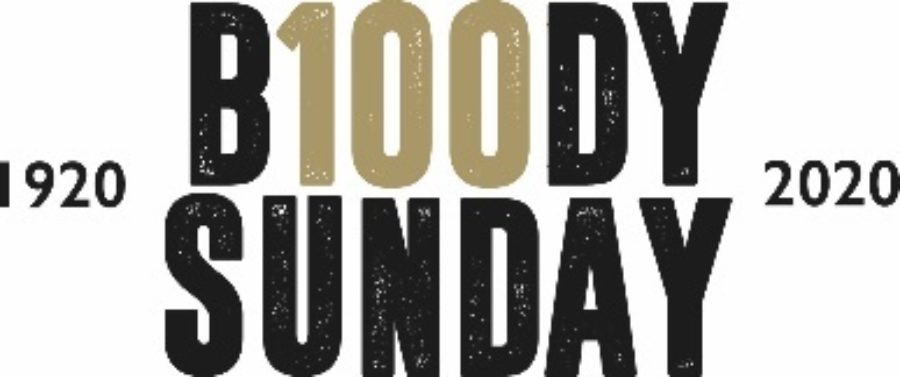
Despite the progress we’ve made over the past twenty years, reflected in the mature reactions to the visits of the English rugby team to Croke Park in 2007 and Queen Elizabeth and other members of the British Royal Family in the last decade, it’s evident that our often-mixed feelings around the various historical events pockmarked throughout these years of anniversaries and commemorations continue to play a significant part in how we see ourselves and our relationship with our closest neighbour.
To Pivot Or Not To Pivot
Meanwhile, in the world of consumer brands, ‘pivot’ was possibly a contender for marketing word-of-the-year, especially in the early months of the pandemic when so many businesses were shut down temporarily and under real threat of permanent closure. With much of shopping activity relocated online and many of our purchasing needs made redundant – there’s not so much call for new fashion when staying at home – many of the brands at the forefront of marketing found themselves desperately seeking new markets.
Supermarket brands and the branded goods that line their shelves were the exception, with a number of hero products such as eggs and flour and fresh ingredients stepping up as the world turned to frenzied baking and cooking at home. Brands that spoke of the comforts of mother, home and kitchen enjoyed a new-found popularity, whilst the reopening of garden and DIY centres in the first wave of easing restrictions only reinforced our renewed relationships with our homes, as necessity truly became the mother of reinvention.
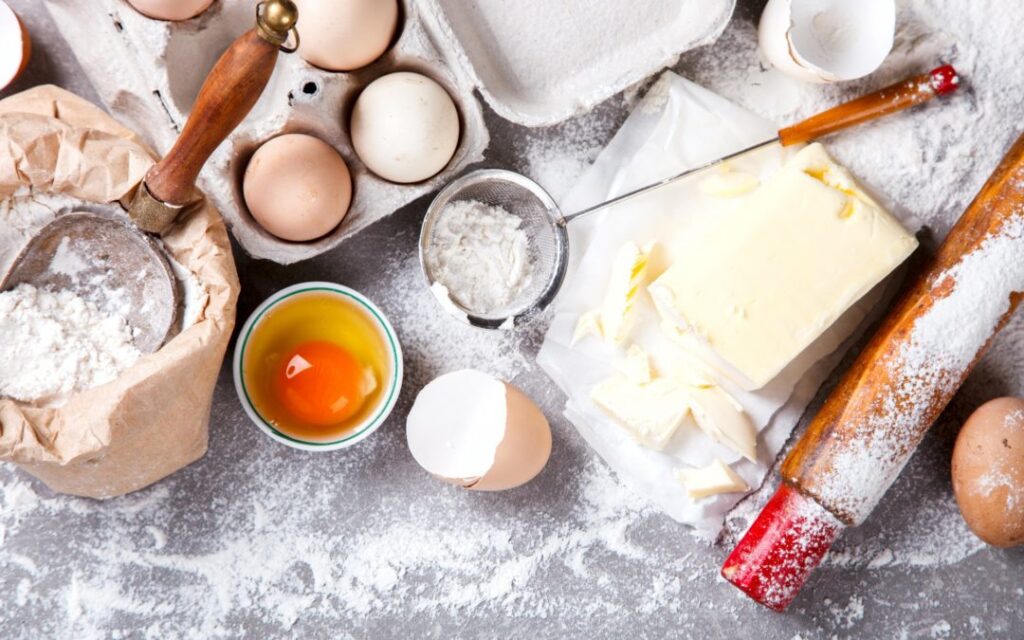
Global hypermarket brand Amazon saw a surge in sales and deliveries, adding to the perils facing traditional bricks-and-mortar businesses, although many of the more foresighted amongst them had responded to the earlier threats posed by Amazon and the other digital giants some years ago by introducing their own ecommerce offerings in tandem with their physical stores. Given the rush of customers back into the shops and restaurants as restrictions were lifted, it’s possible that the pent-up demand created by enforced confinement has stimulated a fresh appreciation for the traditional shopping and dining environments.
Fine-dining restaurant brands, somewhat surprisingly, turned out to be the ultimate ‘chefs de pivot’. Pre-lockdown, many of them seemed to be losing out to the meal delivery services such as Deliveroo and Just Eat which focused on the traditional fast food takeaway. However, lockdown whetted the appetite of loyal dining guests missing the treat of a visit to their favourite restaurant. Chefs and owners showed remarkable agility in pivoting their businesses to a pick-up or delivery model, extending their ranges to include carefully curated table-ready meals, kitchen-ready meals and market-fresh ingredients for DIY meals, and giving the deprived diner the treat of restaurant-quality food and drink at home.
My Brand Of The Year
In a year when we were obliged to reconfigure our lives in ways that we couldn’t have possibly imagined, and came to appreciate what really matters, it’s unsurprisingly a brand that’s ‘closer to home’ in every way that is my own ‘Brand Of The Year’. Despite those global behemoths that stride across the globe crushing smaller players and redefining supply chains, it was a local player rooted in community that reminded us of its continuing relevance in a fast-changing world.

Whilst An Post enjoyed the same surge in demand for delivery services as the larger players, it was their deeply personal response to the wider crisis that marked them out as a truly essential service, with the postman on their round conveying much more than an envelope or parcel to those vulnerable and confined to their homes, and providing them with an invaluable link to the outside world. An Post’s other initiatives, such as its ‘Request A Check-In’, newspaper delivery services and free postage to residential care homes, proved entirely natural brand-extensions for a service which had often looked like it was losing its own way as it tried to compete on many fronts.
And while Covid-19 might have justifiably staked a claim for 2020’s word and brand of the year in terms of its dominance over our conversations and decision-making, it was all of those brands that reached out to us in a truly personal way this year that take the honours and make 2020 the brand year that reminded us our humanity and the importance of connections in our lives and of taking care of one another, and brought it all back home with feeling.
Now, brand-owners and managers: Here comes the human bit – concentrate!

